Perspective
SRM at COP29, Baku, Azerbaijan
Experts react to developments at COP29, the annual, global gathering of climate policymakers. While sunlight reflection methods, also known as solar radiation modification (SRM), was not on the official agenda at COP29, it was addressed in some side sessions. The experts reflect on the event and discuss SRM’s future in international climate discussions.
The latest global climate conference concluded in Baku, Azerbaijan in November 2024 – the 29th meeting of its kind. Formally known as the Conference of Parties (COP) to the United Nations Framework Convention on Climate Change (UNFCCC) treaty, the latest iteration of this political gathering saw some minor progress. The biggest development was an agreement to increase financial commitments from relatively wealthy states to aid relatively poor states to help them adapt to climate change and decarbonise their economies.
As with all previous COPs, discussions on SRM as a set of potential additional approaches to help address climate change were not on the agenda of the policymakers negotiating behind closed doors. However, COP also has an extensive series of side events and some of these addressed SRM.
Several SRM researchers and representatives from civil society organisations working on SRM were in Baku – some share their reflections below.
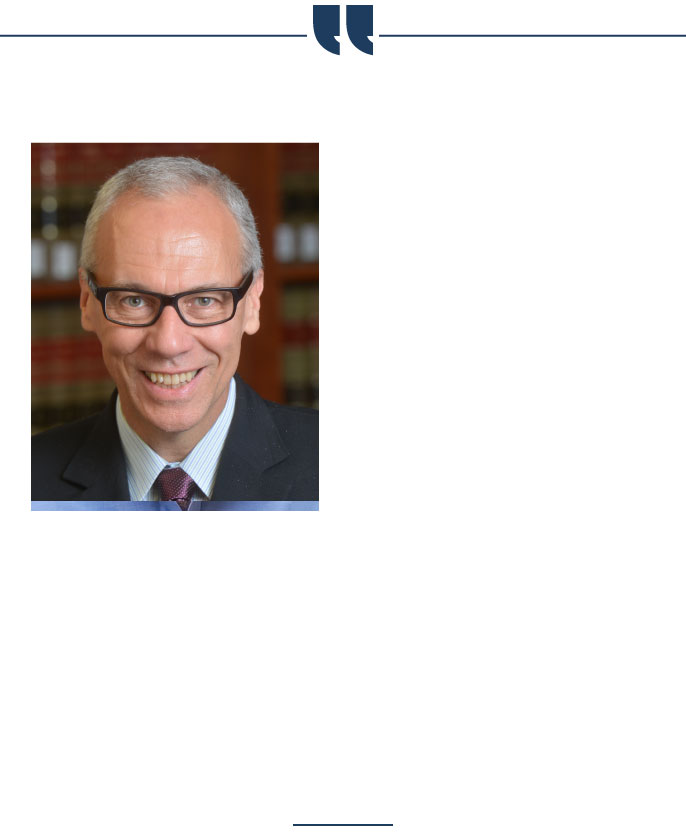
Edward A Parson
Distinguished San and Rae Emmett Professor of Environmental Law;
Faculty director
Emmett Institute on Climate Change and the Environment, UCLA School of Law
Edward A. Parson holds degrees in Physics, Management Science, and Public Policy. He is a law professor and faculty director at UCLA and has served on advisory committees for the U.S. National Academies of Sciences and consulted for the White House, U.S. Congress, and Canadian Government among others.
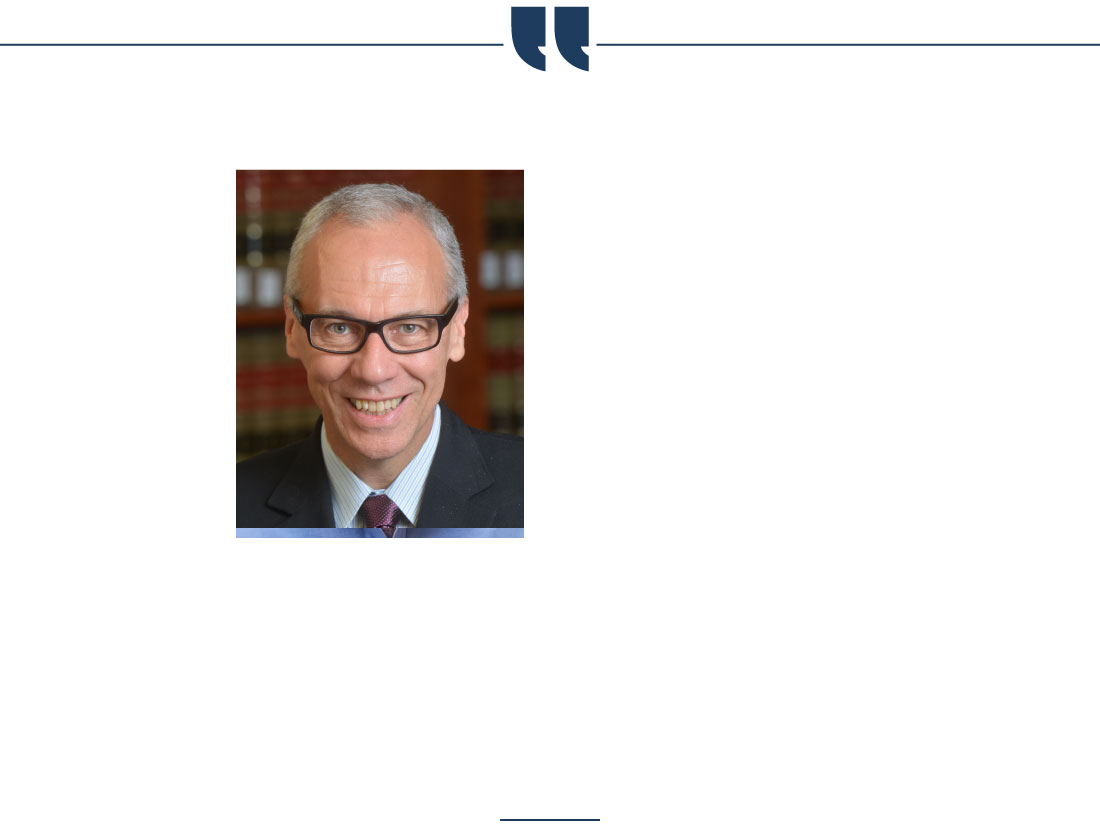
Edward A Parson
Distinguished San and Rae Emmett Professor of Environmental Law;
Faculty director
Emmett Institute on Climate Change and the Environment, UCLA School of Law
Edward A. Parson holds degrees in Physics, Management Science, and Public Policy. He is a law professor and faculty director at UCLA and has served on advisory committees for the U.S. National Academies of Sciences and consulted for the White House, U.S. Congress, and Canadian Government among others.

Edward A Parson
Distinguished San and Rae Emmett Professor of Environmental Law; Faculty director
Emmett Institute on Climate Change and the Environment, UCLA School of Law
Edward A. Parson holds degrees in Physics, Management Science, and Public Policy. He is a law professor and faculty director at UCLA and has served on advisory committees for the U.S. National Academies of Sciences and consulted for the White House, U.S. Congress, and Canadian Government among others.
Despite even more than the usual amount of obstruction and bad faith in the formal negotiations, I found this COP strangely hopeful in the substantial effort and progress exhibited outside the formal negotiations – in the pavilions, the side events, and the corridor talk – on the two issues I was following closely, methane and geoengineering.
On geoengineering, although it remains fully off the main agenda – indeed, the Framework Convention is structurally a bad fit for any consideration of SRM, due to the foundational language of the 1992 Convention that identifies limiting climate change with limiting atmospheric concentrations of greenhouse gases – there were many signs of progress. There was more discussion, including several events specifically focused on SRM. That discussion overwhelmingly reflected a clear recognition of a few basic facts – such as the goal of holding to 1.5°C through emissions cuts and removals alone being out of reach, and the possibility that these essential responses may not scale up fast enough to limit severe climate risks. Even last year such sentiments were expressed much more hesitantly and tentatively. And much of the discussion reflected a responsible, measured approach to SRM – a recognition of its potential great benefits as well as risks; calls for expanded, broadly international research and assessment; and a focus on the need to come to grips with its urgent governance challenges. Most promising of all, the discussions were enriched by many new participants – including scientists and civil-society leaders from more than a dozen nations of the Global South, and young climate activists from multiple nations, North and South. This broadening of perspectives greatly enriched the debate beyond the narrow, mostly Northern European and North American perspectives (both from those like me who favor expanded SRM research and consultation, and those advocating shutting these activities down) that have been most prominent thus far.
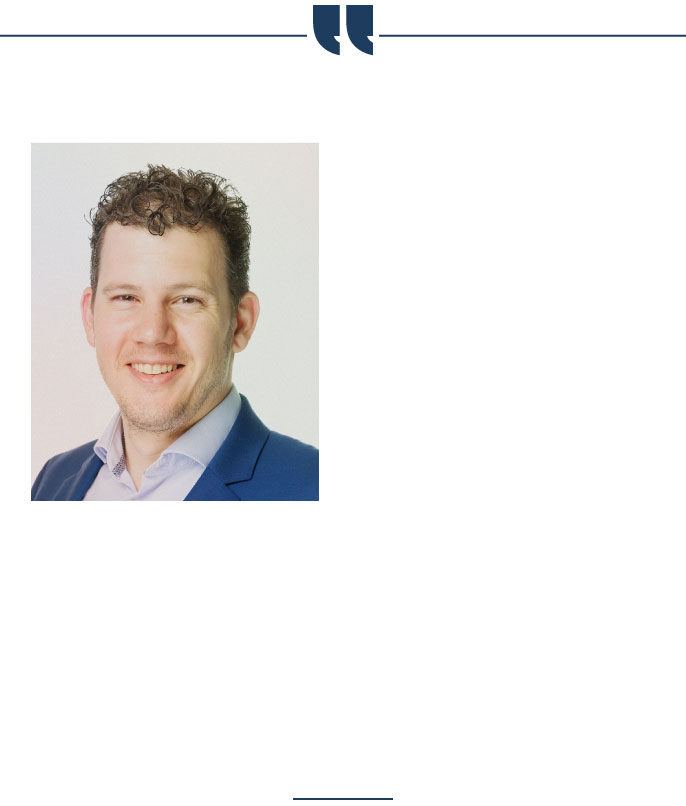
Matthias Honegger
Director of Climate Interventions
International Centre for Future Generations
Matthias Honegger leads the Center for Future Generations’ work on Climate Interventions and the Co-CREATE project for Perspectives Climate Research and advises the European Commission, advancing elements to govern research into solar radiation modification risks and uncertainties.
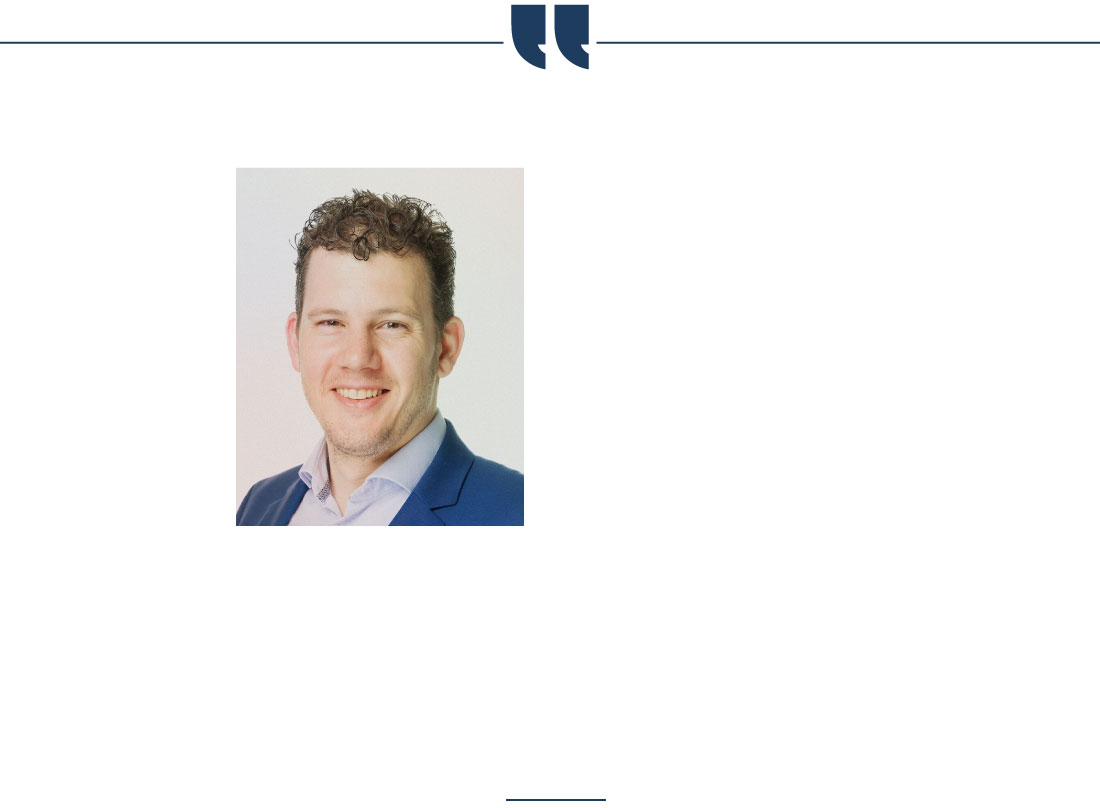
Matthias Honegger
Director of Climate Interventions
International Centre for Future Generations
Matthias Honegger leads the Center for Future Generations’ work on Climate Interventions and the Co-CREATE project for Perspectives Climate Research and advises the European Commission, advancing elements to govern research into solar radiation modification risks and uncertainties.

Matthias Honegger
Director of Climate Interventions
International Centre for Future Generations
Matthias Honegger leads the Center for Future Generations’ work on Climate Interventions and the Co-CREATE project for Perspectives Climate Research and advises the European Commission, advancing elements to govern research into solar radiation modification risks and uncertainties.
This was the 29th conference of its kind – the international community has been at this for a while. For the first two decades, few believed a global agreement was possible and yet this was achieved in 2015 with the Paris Agreement. A decade on, we are, however, losing the race against time and against accumulating emissions. The planet is trending to near 3°C of warming and we regularly experience increasingly deadly weather extremes. Openly discussing the uncertain potentials, implications and risks of diverse means to deal with climate is important to prevent blind spots. In the 2000s, this meant addressing adaptation, previously considered taboo. More recently, this also meant exploring the risks and uncertain potentials of SRM, and how responsible research might be done to produce reliable information. It is crucial that we openly discuss these complex issues despite some actors trying to silence the conversation. Broad and science-based deliberations are essential for placing decisions in the hands of accountable and transparent policy processes – no matter the desired outcome on future use or non-use of SRM.
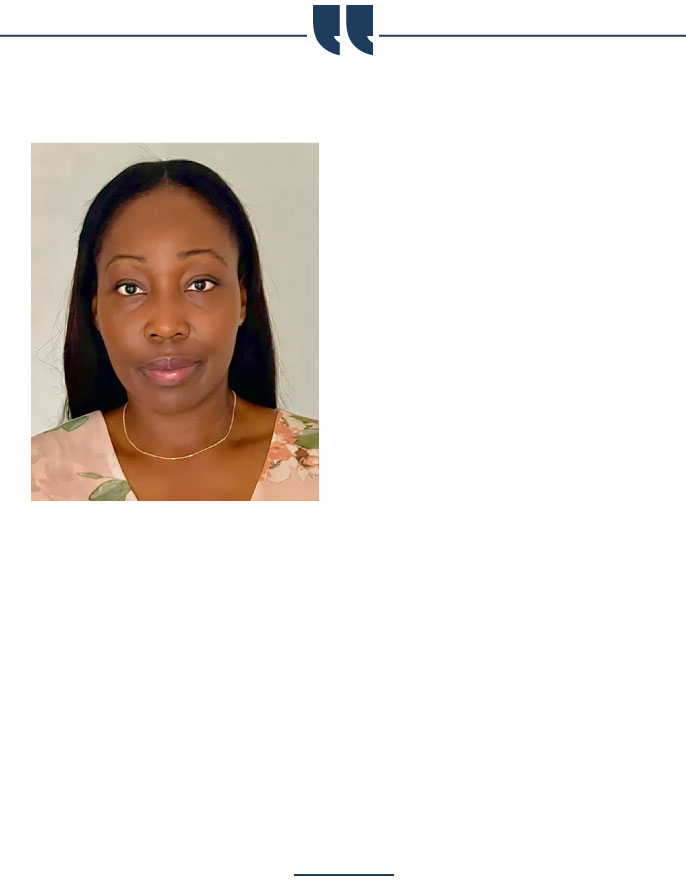
Anita Nzeh
Policy Engagement Manager
The Degrees Initiative
Anita Nzeh manages policy engagement work at the Degrees Initiative, connecting Global South researchers with policymakers and processes aimed at strengthening SRM governance. She has over 14 years of experience in international development and helps bridge the gap between science and policy at national and international levels.
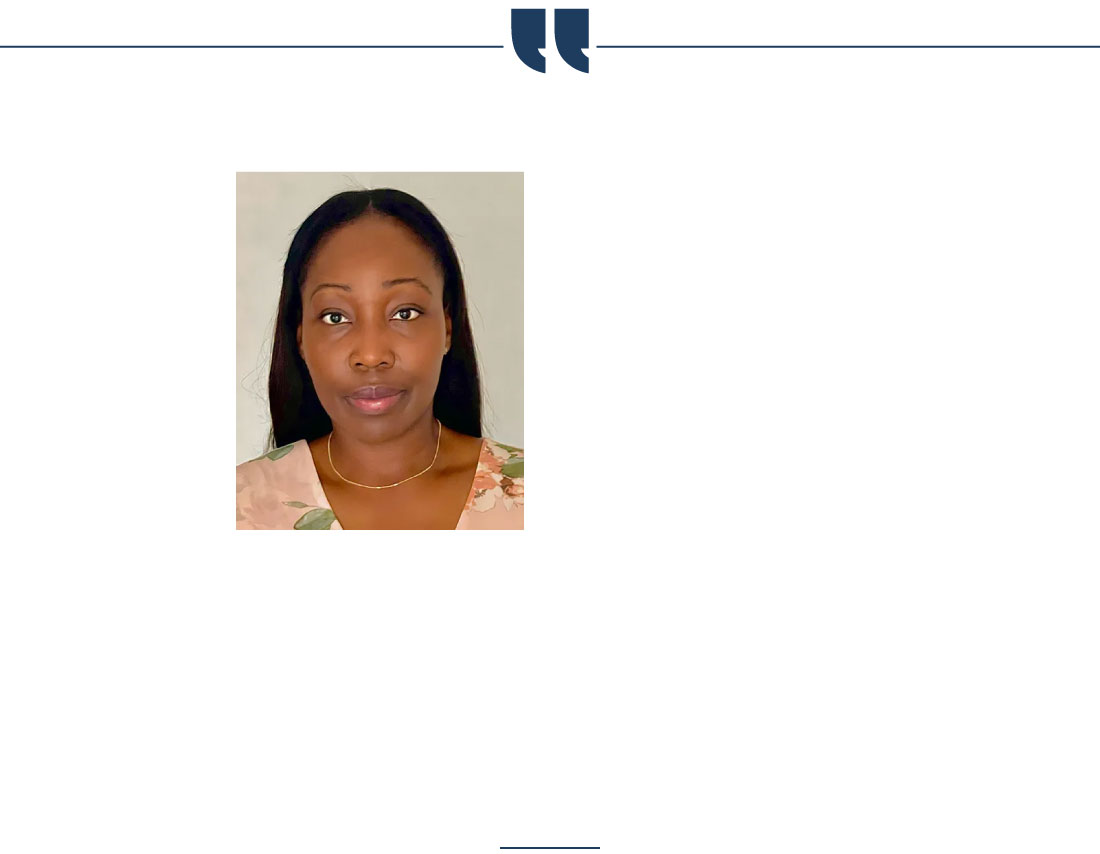
Anita Nzeh
Policy Engagement Manager
The Degrees Initiative
Anita Nzeh manages policy engagement work at the Degrees Initiative, connecting Global South researchers with policymakers and processes aimed at strengthening SRM governance. She has over 14 years of experience in international development and helps bridge the gap between science and policy at national and international levels.

Anita Nzeh
Policy Engagement Manager
The Degrees Initiative
Anita Nzeh manages policy engagement work at the Degrees Initiative, connecting Global South researchers with policymakers and processes aimed at strengthening SRM governance. She has over 14 years of experience in international development and helps bridge the gap between science and policy at national and international levels.
A notable rise in SRM events in the margins of the COP highlights increasing awareness amongst the diverse communities that are involved. Some voices are starting to link the possible approach to Loss and Damage, as it would seek to avert some negative impacts of warming temperatures.
I introduced and moderated the first round of Q&A for The Degrees Initiative and ClimateNet’s side event “Solar Radiation Modification: A Conversation on Governance and Research”, explaining the context in which the SRM discussion was happening at the UNFCCC. It was an opportunity to provide a bridge between the conversations from the recent Sixth United Nations Environment Assembly (UNEA-6) to a likely consideration of SRM at UNEA-7 in December 2025, while connecting SRM with wider voices in the climate negotiating space including civil society, policymakers and others.
The American Geophysical Union (AGU) hosted a closed-door roundtable discussion in the Oceans Pavillion on its recent framework for SRM-relevant research, “Ethical Pathways in Climate Intervention: Balancing Innovation and Responsibility”. It sought feedback on the framework, aiming to identify strengths and gaps and how to ensure its utility by diverse audiences. The Degrees Initiative welcomed the five principles, as they align with our mission and activities. To increase the framework’s utility, the document could have emphasized the need for the climate-vulnerable Global South to build capacity to evaluate SRM, which is vital for fostering an equitable and inclusive global conversation. As an example, the African Group not backing the UNEA-6 SRM resolution due to a lack of scientific expertise, which the Group felt would put Africa at a disadvantage in a United Nations Environment Programme-mandated process.
At the COP, it was encouraging that the SRM events had one theme in common: the need for more research, particularly in climate-vulnerable countries and Global South regions. There was significant government and intergovernmental representation at the SRM sessions, with messaging effectively calling for Member States not to bury their heads in the sand on the topic.
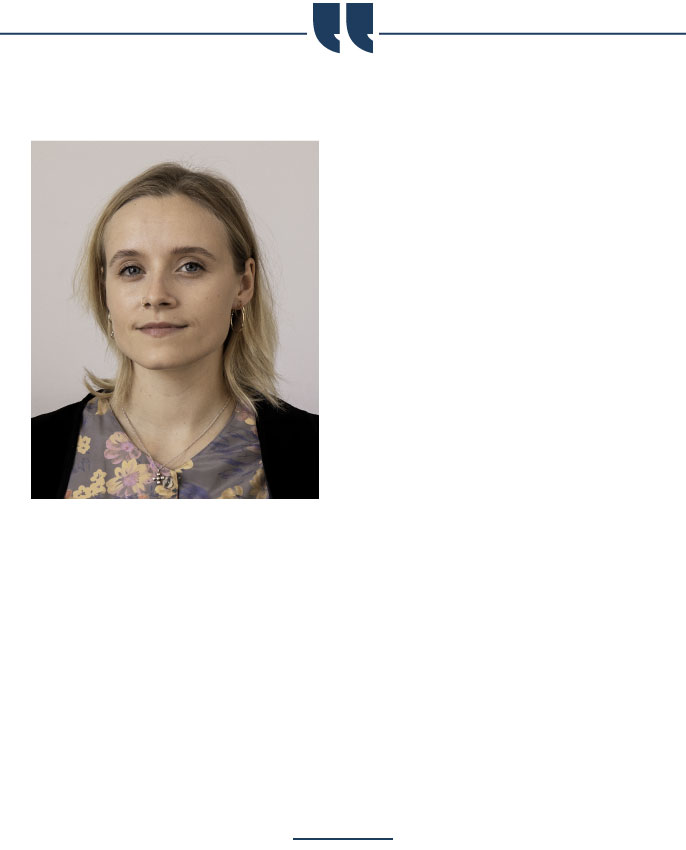
Ellen Haaslahti
Head of Communications
Operaatio Arktis
Ellen Haaslahti is co-founder and Head of Communications for Operaatio Arktis, a youth-led organization based in Finland that seeks immediate action for comprehensive climate-change solutions. Ms. Haaslahti holds a master’s degree from the University of Helsinki with a focus on perceptions of SRM.
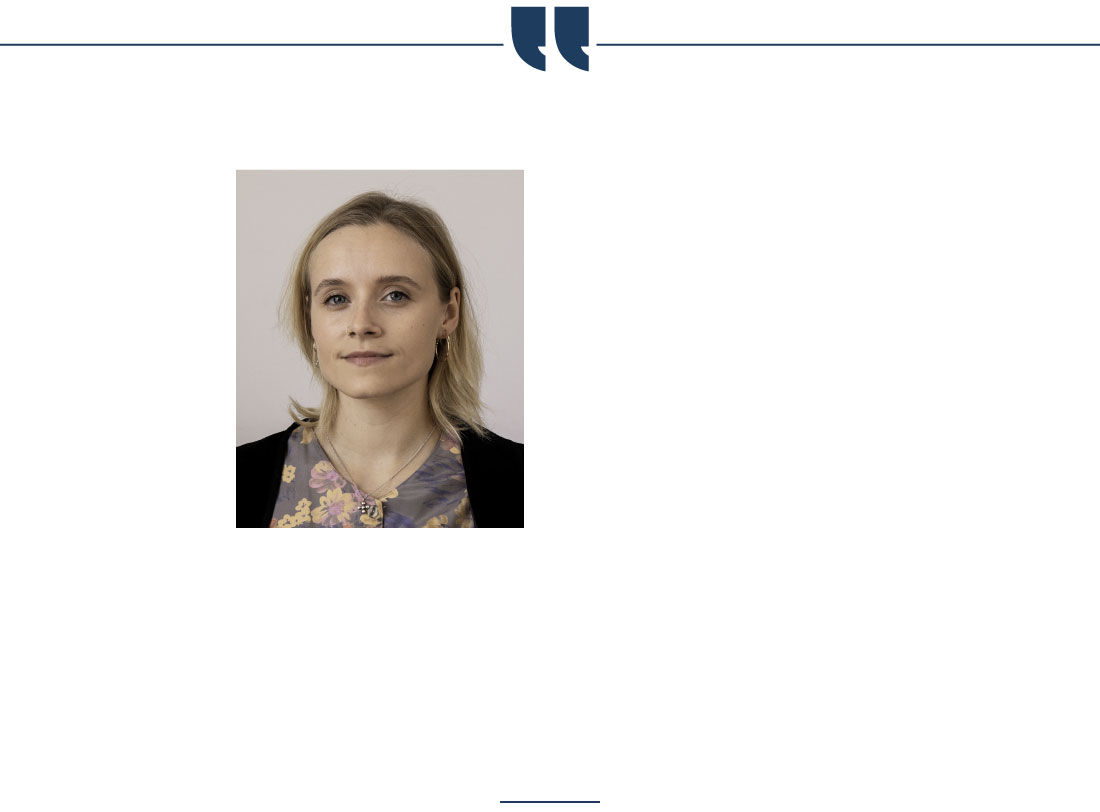
Ellen Haaslahti
Head of Communications
Operaatio Arktis
Ellen Haaslahti is co-founder and Head of Communications for Operaatio Arktis, a youth-led organization based in Finland that seeks immediate action for comprehensive climate-change solutions. Ms. Haaslahti holds a master’s degree from the University of Helsinki with a focus on perceptions of SRM.

Ellen Haaslahti
Head of Communications
Operaatio Arktis
Ellen Haaslahti is co-founder and Head of Communications for Operaatio Arktis, a youth-led organization based in Finland that seeks immediate action for comprehensive climate-change solutions. Ms. Haaslahti holds a master’s degree from the University of Helsinki with a focus on perceptions of SRM.
The UN Climate Change Conference and its parties have limited capacities to address emerging issues such as SRM or the growing likelihood of overshooting the 1.5°C global temperature rise limit. Echoing an increasing number of stakeholders at COP29, there is an urgent need for more scientific contributions, particularly from climate-vulnerable regions, to assess the various aspects and regional impacts of SRM approaches. Policymakers and younger generations need to be equipped to make informed decisions regarding the potential role of SRM within broader climate strategies, aiming to minimize severe impacts on ecosystems and societies. At the same time, we must ensure that SRM does not reinforce tactics that are used to delay decarbonisation efforts. For me, and in this regard, COP29 served as yet another call to unite and envision clearer pathways for decarbonization, including the consideration of SRM approaches.

David M. McEvoy
Department Chair and Professor of Economics
Appalachian State University
Dave McEvoy is Professor and Chair of the Economics Department at Appalachian State University. His research focuses on global environmental issues and international environmental agreements, and he holds graduate degrees in environmental and resource economics from University College London and the University of Massachusetts-Amherst.
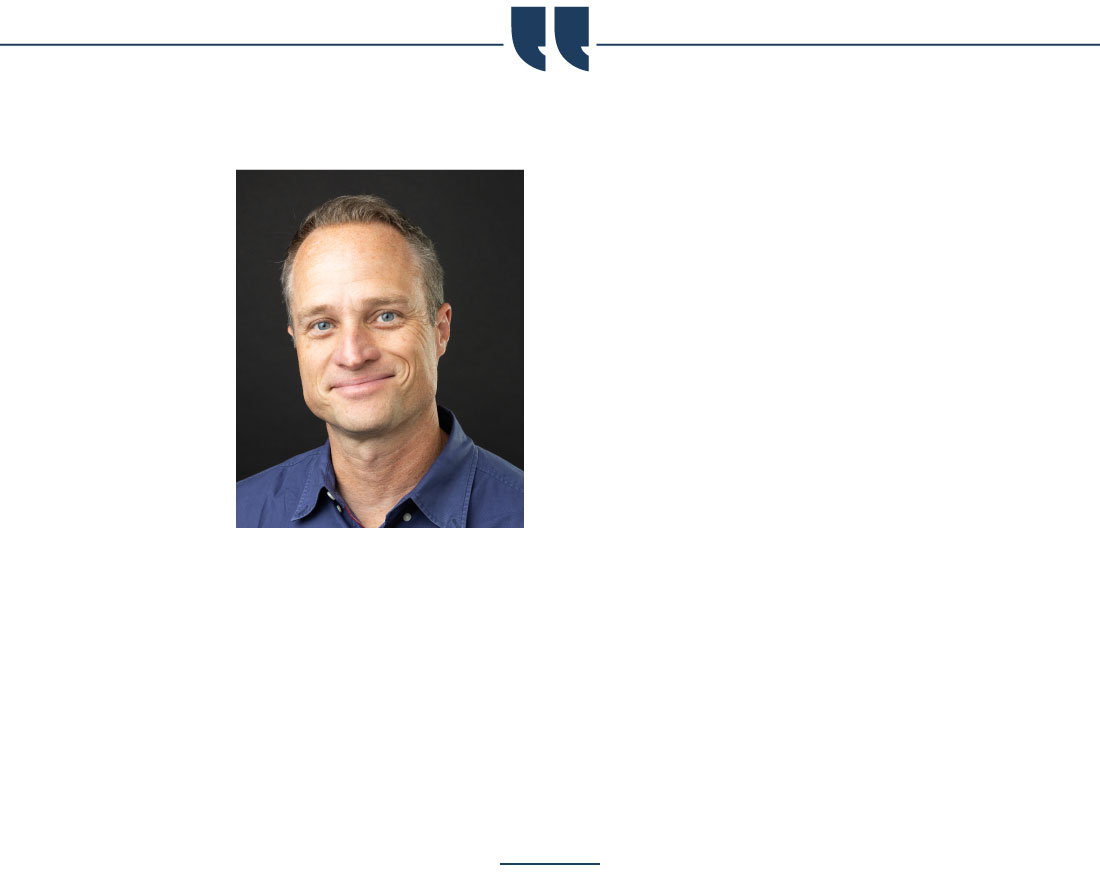
David M. McEvoy
Department Chair and Professor of Economics
Appalachian State University
Dave McEvoy is Professor and Chair of the Economics Department at Appalachian State University. His research focuses on global environmental issues and international environmental agreements, and he holds graduate degrees in environmental and resource economics from University College London and the University of Massachusetts-Amherst.

David M. McEvoy
Department Chair and Professor of Economics
Appalachian State University
Dave McEvoy is Professor and Chair of the Economics Department at Appalachian State University. His research focuses on global environmental issues and international environmental agreements, and he holds graduate degrees in environmental and resource economics from University College London and the University of Massachusetts-Amherst.
Although discussions on SRM were, as usual, relegated to side events at COP29, it was clear that this year’s panels featured a broader and more diverse range of participants compared to previous COPs. These included senior members of the Intergovernmental Panel on Climate Change (IPCC), representatives from United Nations organizations, and experts from other prominent international institutions. The discussions at COP29 were particularly focused on understanding the perspectives of those from the Global South – regions most vulnerable to the impacts of climate change. Speakers from these areas, including youth organizations, highlighted the risks of continuing along the current trajectory of global warming and stressed the importance of expanding SRM research in the Global South. The conversations underscored the need for SRM research that is geographically inclusive, interdisciplinary, and intergenerational. I left COP29 encouraged by the evolving nature of SRM discussions and look forward to a more comprehensive analysis of SRM in the next IPCC report.
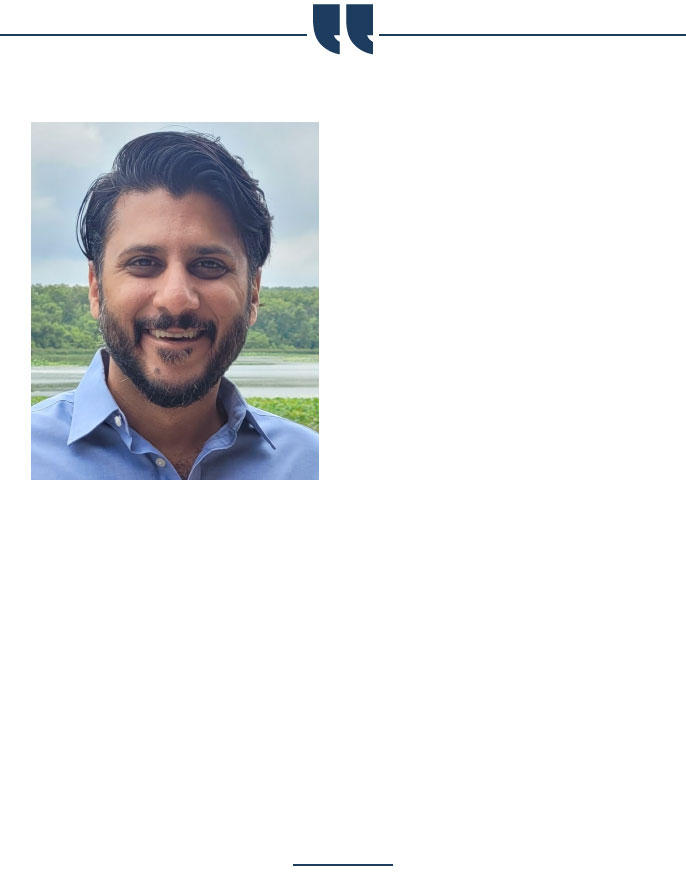
Hassaan Sipra
Director of Global Engagement
The Alliance for Just Deliberation on Geoengineering
Hassaan Sipra is the Director of Global Engagement at The Alliance for Just Deliberation on Solar Geoengineering, works on grants-based SRM research projects, and has conducted climate and environmental protection research and policy work internationally. He holds degrees in Economics and Environmental Science and in Environmental Management.

Hassaan Sipra
Director of Global Engagement
The Alliance for Just Deliberation on Geoengineering
Hassaan Sipra is the Director of Global Engagement at The Alliance for Just Deliberation on Solar Geoengineering, works on grants-based SRM research projects, and has conducted climate and environmental protection research and policy work internationally. He holds degrees in Economics and Environmental Science and in Environmental Management.

Hassaan Sipra
Director of Global Engagement
The Alliance for Just Deliberation on Geoengineering
Hassaan Sipra is the Director of Global Engagement at The Alliance for Just Deliberation on Solar Geoengineering, works on grants-based SRM research projects, and has conducted climate and environmental protection research and policy work internationally. He holds degrees in Economics and Environmental Science and in Environmental Management.
The conclusion of COP29 in Baku last month was disappointing, as the deal struck there committed to providing far fewer resources annually by 2035 than needed for mitigation alone, not to mention adaptation, and loss and damage. The lack of political will to chart a fossil-free development pathway for Global South countries further amplified the pervasive fears that climate negotiations (and the Paris Agreement) will not manage to stymie the catastrophe rapidly unfolding on the global stage, opening the conversation about SRM research and potential SRM deployment ever further. Although the UNFCCC remains officially unengaged on this subject, COP29 saw several groups educate and deliberate on SRM at side events, country pavilions, and in writings – an increasing trend from previous COPs.
The inherent complexity of SRM research and governance demands time and resources to deliver nuanced knowledge, that is developed in inclusive, transparent, justice-oriented ways. This is needed to empower societies and their decision-makers to make the hard choices between the risks of worsening, unchecked climate change and the risks of directly intervening into global climate systems. That sentiment was echoed by most of the somewhat diverse expertise that presented on the topic of SRM. They also agreed that locking the planet into SRM deployment cannot work without first having concerted action towards emissions mitigation, removal of legacy emissions and reducing Global North-South asymmetries. Audiences following this debate are also still finding the information on SRM novel and incomplete, highlighting the need for more work to aid in robust future decision-making on the potential use or non-use of these technologies.
SRM decisions are complicated by measures being undertaken (and planned) by state and non-state actors at, and beyond, COP29, and will remain dangerously fragmented for the foreseeable future. Walking away from COP29, SRM looms larger than ever; we will have to contend with it – the sooner the better.
The views expressed by Perspective writers and contributors are their own and are not necessarily endorsed by SRM360. The goal of our Perspectives is to present ideas from diverse viewpoints, further supporting informed discussion of sunlight reflection methods.
Ask us a question!
Citation
Reuse this work freely
All visualisations, data, and code produced by SRM360 are open access under the Creative Commons BY license. You are free to use, distribute, and reproduce these in any medium, provided that SRM360 and the authors are credited.
Data produced by third parties and made available by SRM360 is subject to the licence terms of the original third-party authors. We will always indicate the original source of such data in our documentation, so please review the licence of any third-party data before use and redistribution.



